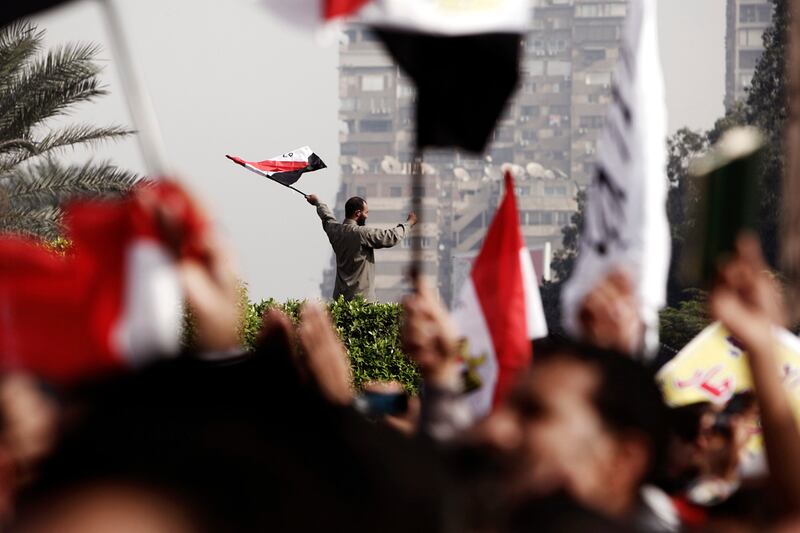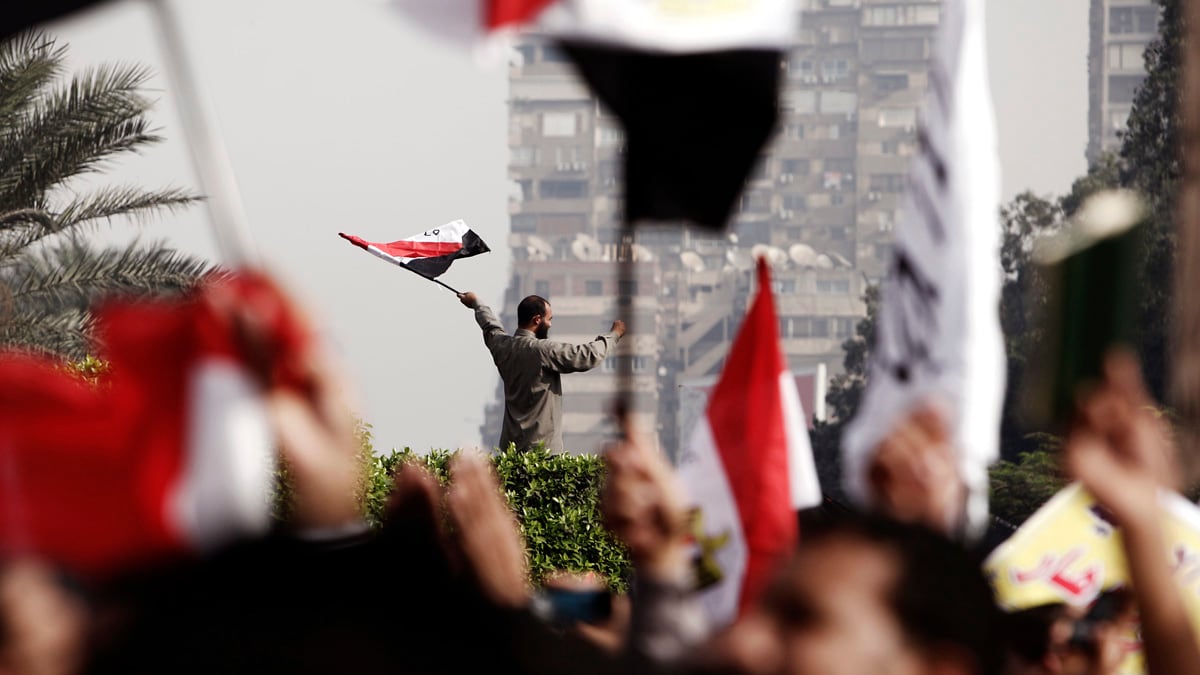The Muslim Brotherhood has always played the long game in its bid to cement its political power in Egypt. Under former president Hosni Mubarak, the Brotherhood had a gentleman’s agreement that allowed it to provide social services as long as it did not challenge the central powers of the state. Intentionally shying away from institutions such as the armed forces and the justice system, it was given carte blanche to develop an Islamist periphery, pushing Egyptian society toward Islamic conservatism by controlling the so-called Ministry of Ideology: education, media, and social welfare programs.

The Brotherhood became widely admired within society—and by infiltrating schools and universities, it shaped a large sector of Egyptian society into its own image, instilling in them the mantra that “Islam is the Solution.” It is easy to get elected with such tremendous grassroots support. When the political system opened up following Mubarak’s overthrow, the Brotherhood did not even need to ask for votes. They were given them by supporters shaped by the Brotherhood’s ideology and who had long-benefitted from its benevolence.
Now that the Brotherhood is in power and President Mohamed Morsi is calling for a national referendum on the Islamist-penned constitution, Egypt faces its greatest challenge since the revolution. The central aim of the Brotherhood is to ensure that political Islam is permanently imposed on all citizens. It is challenging the democratic nature of a future Egyptian state.
The Brotherhood’s agenda is with God, not with Egypt’s citizens. Morsi’s goal is to consolidate his power by imposing political Islam on every Egyptian. He is governing in the name of his constituency, not the country. The most dangerous aspect of this constitution is that it limits freedom of expression. It declares that the purpose of media is to uphold public morality. So if you are accused of insulting the president, the courts, or the parliament, it can be considered a criminal offense.
This constitution does not guarantee women’s rights or equality. Now, the question of women’s equality is subject to interpretation by the courts. It places the so-called stability of the family and public morality above fundamental individual rights.
Morsi is a brilliant tactician, and waited for the right timing to drop his mask and show his true authoritarian-Islamist face. First, he forced members of the Supreme Council of the Armed Forces (SCAF) to resign, and then waited for some kind of international recognition. After brokering the ceasefire between Israel and Hamas, he issued a decree that put him and the constitutional assembly above the law. He started a witch hunt against everyone who criticizes him, and with the help of his aides, arrogantly dismisses journalists, judges, and the liberal opposition as subversive remnants from the Mubarak era. Even though the Brotherhood controls the presidency, the Shura council, and the People’s Assembly, there is no way Egypt can have stability without Morsi governing with high regard for all Egyptians.
Unlike the Islamist-led government in Turkey, Egypt lacks the checks and balances necessary to ensure the balance of power and avoid authoritarian tendencies. In Turkey, the PKK party is restrained by the state’s secular constitution, strong military institutions, and a secular legal system. Egypt will never be a secular state, nor should it have to be. However, the Brotherhood or any other party must be held accountable by independent state institutions.
At the moment, the only forces left to restrain the Morsi government are the Egyptian street protesters and the U.S. government. Egyptians have loudly protested in opposition to Morsi’s power-grab and the draft constitution. Even though they have been met with violence, the Egyptian street will continue burning until all voices are included and heard.
The U.S. government has the biggest leverage over Morsi with 1.4 billion dollars of annual aid to Egypt. It must be given with a set of conditions that ensure the democratic foundation of Egypt—only then will the spirit of the revolution be saved.






